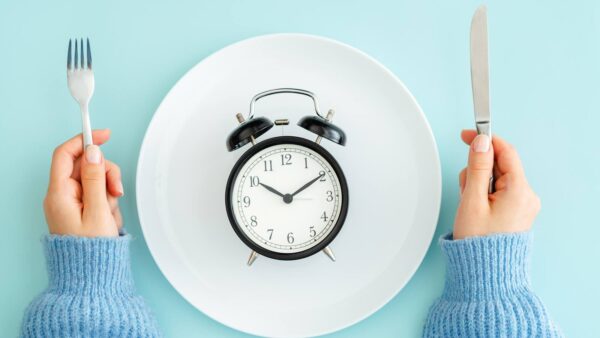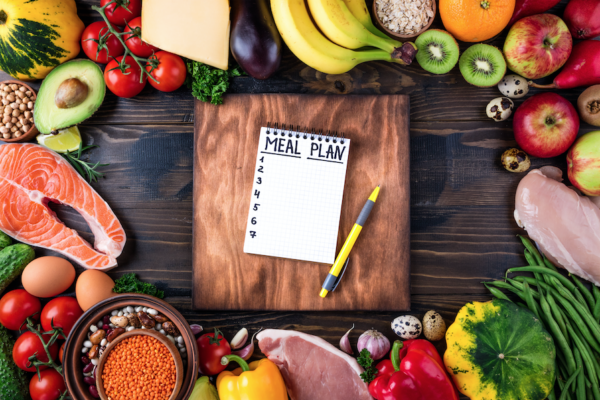
With Christmas over and done with for another year, many of us may be keen to start the new year by getting in shape again after the indulgences of the festive period. Use the simple and actionable tips below to help you lose the Christmas weight gain – and successfully keep it off.
1. Stay Hydrated

Let’s start with the basics. We all know the importance of staying hydrated, but few of us are actually drinking the required amount of water daily. Staying hydrated not only can help boost energy levels, improve physical performance and cognitive function, it can also prevent you from snacking: research has shown that the body’s thirst signals are often misinterpreted as hunger, and so, if you’re feeling peckish between meals, try having a drink of water before opening the fridge – your body may simply need some hydration.
In terms of how much you should be aiming to drink on a day-to-day basis, men should try to drink about 2.5 liters of water, and for women, it’s approximately 2 liters. Achieve your daily intake goal by drinking both plain water, milk, fruit juices, and smoothies – tea and coffee all count, although be aware that these drinks are known to have diuretic properties: meaning that they are likely to make you pee more! Eating fruits and vegetables with a high water content can help you stay hydrated, too: these foods include grapes, watermelon, and celery.
Drinking plenty of fluids can help with digestive issues, too, as well as meaning that you’re likely to feel ‘full up’ for longer and less at risk of succumbing to the mid-morning munchies.
2. Intermittent Fasting

Diets that feature elements of intermittent fasting are extremely popular right now; unlike many of the fad diets that come and go, there is some strong science to back up the health benefits of this approach, which include weight loss.
While this diet may not be for everyone, part of its success is due to its simple restriction of the hours in which participants can eat – this results in a reduction in the number of calories consumed in a twenty-four-hour period. You can continue reading here for more information on how this diet can help to burn off fat and improve metabolic rate, as well as its other benefits. Advocates of intermittent fasting often claim that this method more closely resembles our ‘natural diets as hunter-gatherers, in which there may be one or two periods of eating during the day, followed by a substantial number of hours where no food was consumed at all.
If you think this approach to eating could work for you, be sure to consult a doctor or other health professional first to ensure it will be suitable, based on your personal circumstances.
3. Make Exercise Work For You

Choosing a type of exercise that you enjoy is vital to maintain motivation: you may feel like signing up to a gym is the go-to means to get the weight off fast…but if, in your heart, you know that there’s a high likelihood that your membership will go unused after the first week or two, then think again about how you can incorporate effective exercise into your daily life in a sustainable fashion.
Perhaps a morning yoga routine would work for you or a lunchtime swim. If you have a couple of friends who want to get fit for the new year, running, playing tennis, or attending an aerobics course together is a great way to keep motivation high and support each other as you work towards your health goals.
If time constraints are an issue, think about ways that you could integrate some exercises into activities or tasks you are already doing: for example, join a conference call while on a half an hour walk, or spend some time on the exercise bike while watching a training video.
4. Plan Your Meals

Meal planning is one of the most potent weapons in your arsenal when it comes to ditching the Christmas weight gain. Planning out your meals in advance means that you can create a nutritious weekly menu and be much less likely to succumb to the temptation of a takeaway or a quick plate of junk food when you get home from a busy day at work.
Make meal planning work for you by bulk cooking and freezing whenever possible: it’s almost as quick to prepare three lasagnas as one, which gives you two frozen meals ready to grab out as needed. Plan snacks, too, to help you on your weight loss journey and portion them out ready, so there’s no risk of overindulging: measure out portions of nuts, cheese, and dried fruits into grab-and-go containers to enjoy at home and work. If you can, try to prevent the foods that you want to avoid from coming into the house at all, and getting family on board with this will be really important.
When it comes to serving up, consider using a smaller plate size. Research has consistently shown that those eating from smaller plates tend to eat less and feel full quicker – the power of psychology means that your brain believes you are getting a ‘full’ portion of food and reacts accordingly, rather than feeling it is being denied food, and craving more as a result.
5. Lay Off the Booze

Many alcoholic drinks contain a significant amount of calories and sugar, and you may be surprised to learn just how many calories you’re consuming in a week by having just two small glasses of wine a night (if you really want to know, it’s approximately 1,400).
As well as adding to your daily calorie count, you’re much more likely to let your weight loss resolve weaken when you binge on the booze: takeaways, bar snacks, and other yummy indulgences may all seem like perfectly reasonable choices when you’ve had a drink or two too many.
Cutting back on the number of alcoholic units you drink weekly (or cutting alcohol out altogether) has many health benefits, aside from weight loss. If you decide to go down this route, make a plan to help you succeed: rather than having a vague goal to reduce your alcohol intake, set a concrete target: to reduce your weekly consumption by five units, for example.
Habits For a Healthy New Year
Start your weight loss journey by incorporating the above habits into your daily life; use this guide to help you get rid of the festive weight gain sustainably and easily so that you can enjoy many healthy new years to come!